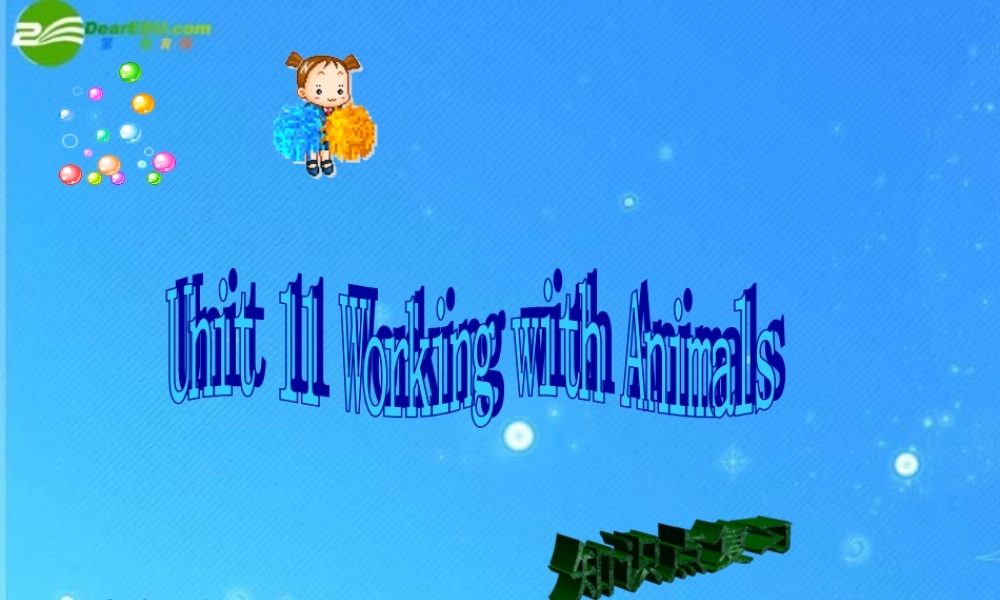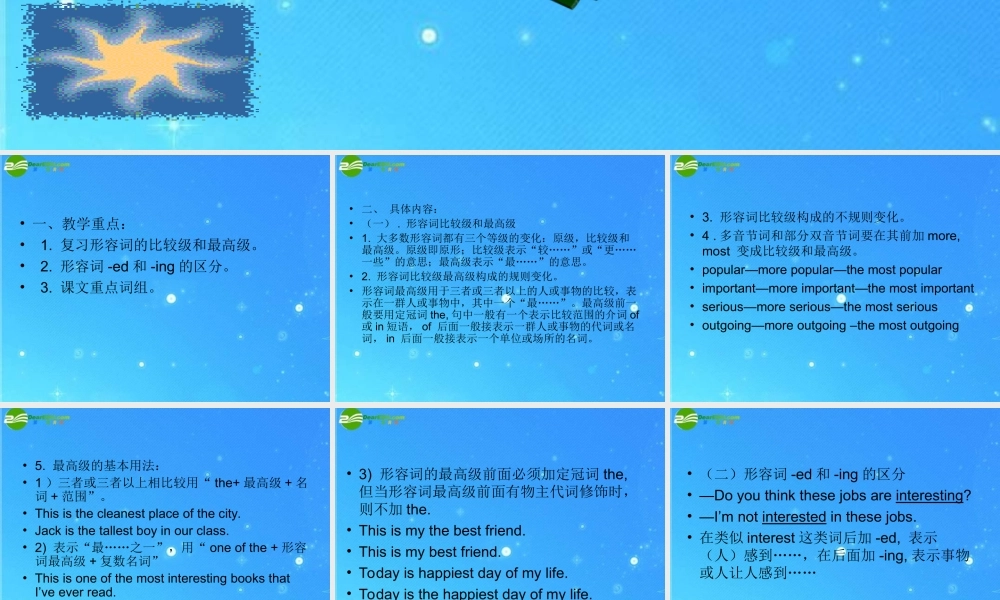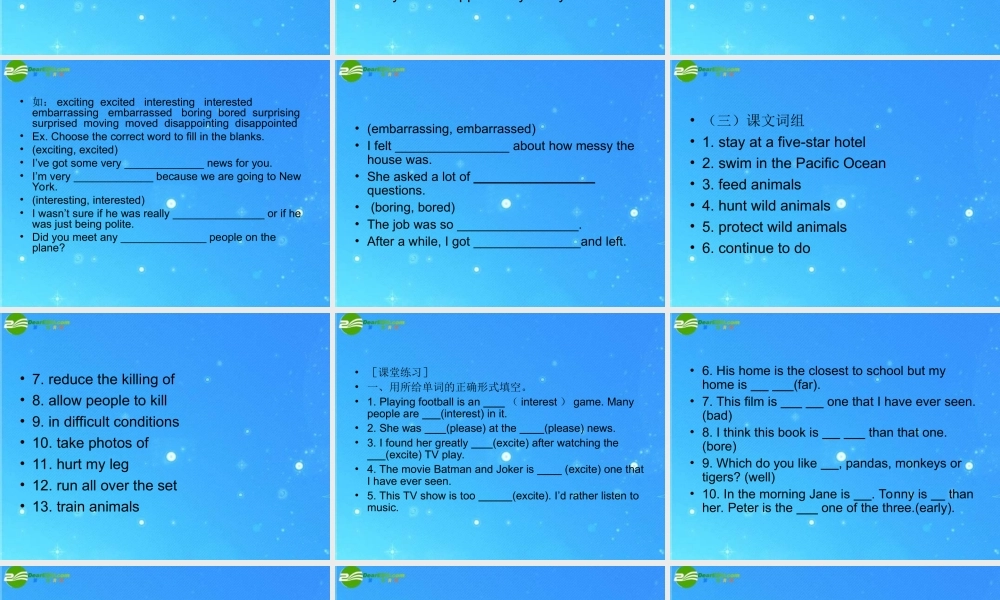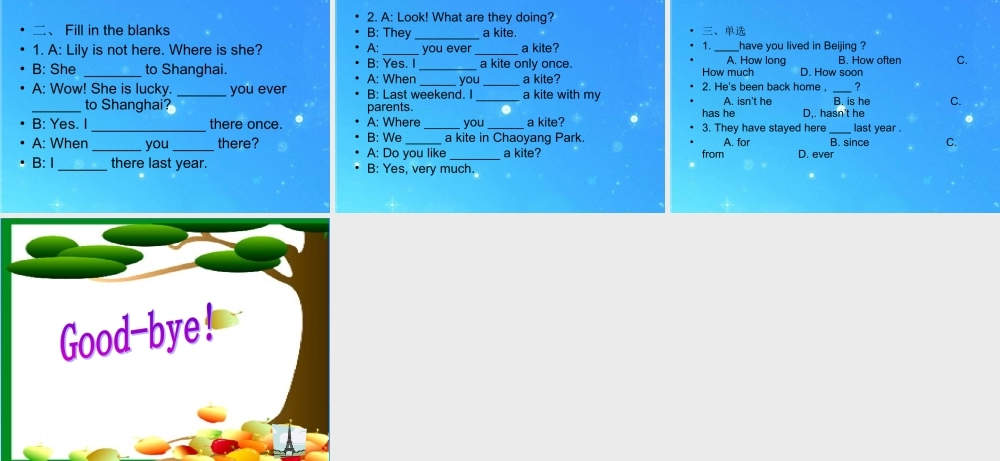• 一、教学重点:• 1. 复习形容词的比较级和最高级。• 2. 形容词 -ed 和 -ing 的区分。• 3. 课文重点词组。• 二、 具体内容:• (一) . 形容词比较级和最高级• 1. 大多数形容词都有三个等级的变化:原级,比较级和最高级。原级即原形;比较级表示“较……”或“更……一些”的意思;最高级表示“最……”的意思。• 2. 形容词比较级最高级构成的规则变化。• 形容词最高级用于三者或三者以上的人或事物的比较,表示在一群人或事物中,其中一个“最……”。最高级前一般要用定冠词 the, 句中一般有一个表示比较范围的介词 of或 in 短语, of 后面一般接表示一群人或事物的代词或名词, in 后面一般接表示一个单位或场所的名词。• 3. 形容词比较级构成的不规则变化。• 4 . 多音节词和部分双音节词要在其前加 more, most 变成比较级和最高级。• popular—more popular—the most popular • important—more important—the most important• serious—more serious—the most serious• outgoing—more outgoing –the most outgoing• 5. 最高级的基本用法:• 1 )三者或三者以上相比较用“ the+ 最高级 + 名词 + 范围”。• This is the cleanest place of the city.• Jack is the tallest boy in our class.• 2) 表示“最……之一”,用“ one of the + 形容词最高级 + 复数名词”• This is one of the most interesting books that I’ve ever read.• 3) 形容词的最高级前面必须加定冠词 the,但当形容词最高级前面有物主代词修饰时,则不加 the.• This is my the best friend.• This is my best friend.• Today is happiest day of my life.• Today is the happiest day of my life.• (二)形容词 -ed 和 -ing 的区分• —Do you think these jobs are interesting?• —I’m not interested in these jobs.• 在类似 interest 这类词后加 -ed, 表示(人)感到……,在后面加 -ing, 表示事物或人让人感到……• 如: exciting excited interesting interested embarrassing embarrassed boring bored surprising surprised moving moved disappointing disappointed • Ex. Choose the correct word to fill in the blanks....



